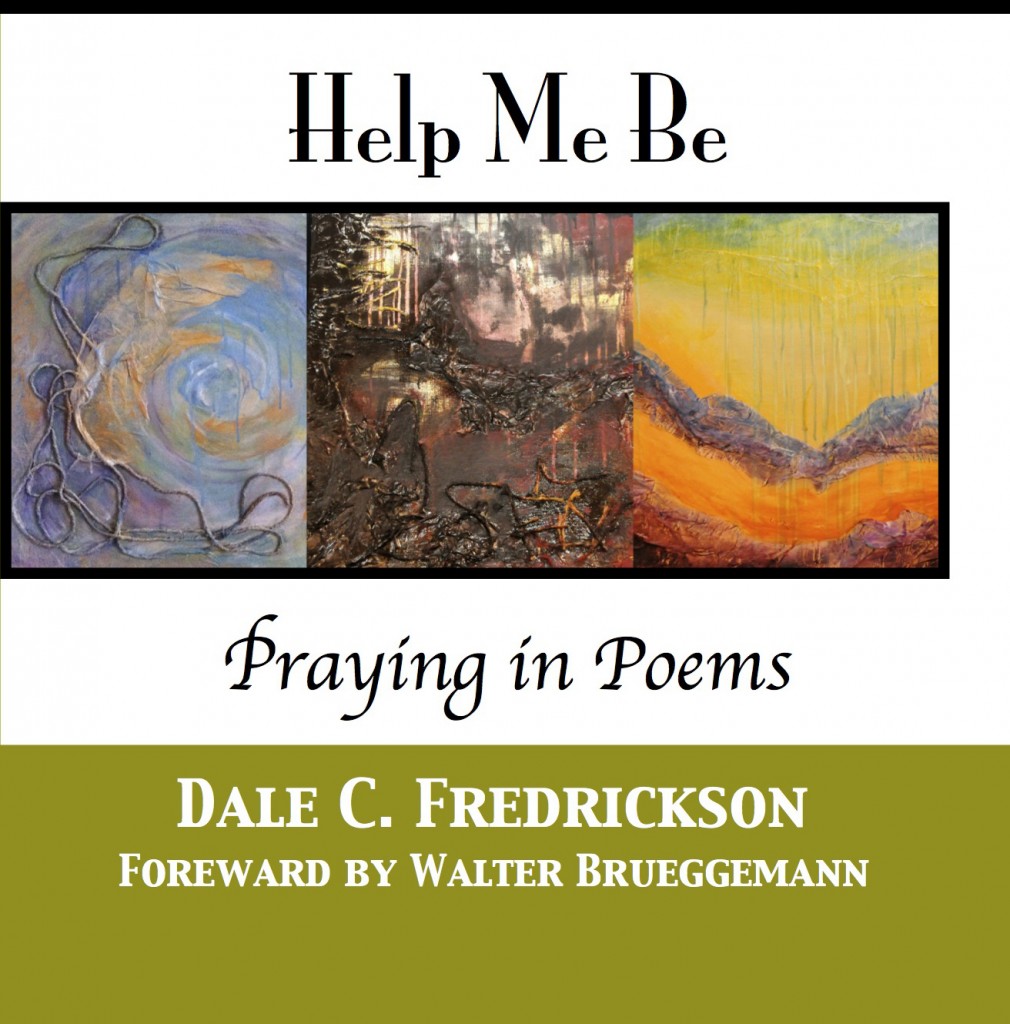
Help Me Be: Praying in Poems by Dale C. Frederickson
Not often does a book of poetry come along that jolts you
from comfortable surroundings into a world of such piercing realities. Help Me Be: Praying in Poems by Dale C.
Frederickson is one of those books that forces you to stand up and take notice.
Dale is a teaching pastor at St. Andrew UMC in Highlands Ranch, Colorado and
also a spoken word artist who revels in the desire to ignite others into what
God wants them to be. These poems are
broken up into three sections: Orientation, Disorientation, and New Orientation. Both sections follow some of the patterns of
the biblical storyline from Creation, Fall, Redemption and Renewal. The result of these poems is a beautiful
arrangement of both deep emotions and pictures of what it means to wrestle with
life on this Earth with God at the helm of everything.
In the poem entitled God of Creation, Frederickson pens,
God
of Creation,
The
rain has come.
The
fires are done.
Your
love told.
Your
people bold.
But still, aches
remain.
Can
Peace again reign?
The picture
of both the inanimate and animate creation are given with the penultimate
weight falling upon the human race. Yet,
there is a dissonance here in that the aches of a broken world remain with the
longing for things to be put right. As
Frederickson goes onto speak about Jesus embodying God’s peace, we see that the
aching both physically and spiritually will be put to rest. The poem feels here like its running toward
the coming of peace, Jesus, so that the glory of the created order might shine
once again without obstruction. Dale has
a unique way of verbally opening up God’s concrete activity in the midst of his
creation in such a way as to bring us to open our eyes to God’s ongoing
activity.
There is a
painful recognition of the stark reality that we live in, in some of Dale’s
poems. In Not What We Expected, he
writes,
O
Lord,
Our
Hearts Hurt.
Our
Guts Groan.
Our
Eyes Swell.
This
is now what we expected,
Not
the way it’s supposed to god.
Not
the script we wanted.
Not
the way Peter’s story should be told.
I know that
these feelings and groans are part of life, but it hurts deeply. Dale has a way of capturing the weight of
agony and despair with few words but with the right ones. Deep inside of our hearts and physical bodies,
we hurt for our situation to change, for the pain to subside for a moment. Yet, as the poem continues we might not have
but a breath, but we do experience the Grace of God in these moments. The only questions that remains is the
question regarding duration of painful moments.
When will all this terrible stuff end?
Dale brings together all the emotions of our souls without
pretense. Yet, he also brings us face to
face with a God whose love never fails and whose mercy is unfailing. The great thing about these poems is they
look heavenward to the God of all comfort even while facing the stark reality
of a broken world with broken people who inhabit it.
I recommend
this book of poems to anyone who finds their old ways of describing faith not
adequate for their life situation. These
poems will push and challenge you to see God in all his glory rightly.
Thanks to
SpeakEasy and Dale C. Frederickson for the complimentary review of this book in exchange for review.
Comments
Post a Comment